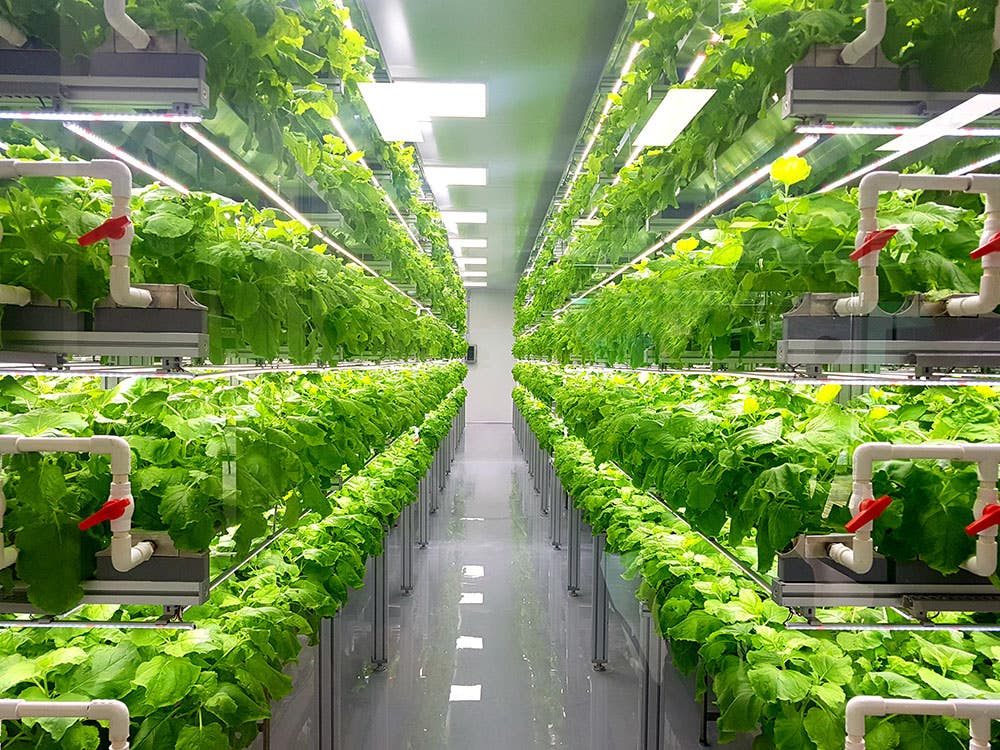Vertically farmed produce tastes as good as organic ones, study finds
Vertical farming, often met with skepticism and misconceptions, is emerging as a potential solution to address food security challenges.

[Jan. 13, 2024: JD Shavit, The Brighter Side of News]
Vertical farming, often met with skepticism and misconceptions, is emerging as a potential solution to address food security challenges. (CREDIT: Creative Commons)
Vertical farming, often met with skepticism and misconceptions, is emerging as a potential solution to address food security challenges and promote sustainable agriculture.
A groundbreaking study conducted by researchers from the Department of Food Science in Denmark has challenged consumer prejudices surrounding vertically farmed vegetables, revealing promising results that could reshape the future of food production.
Researchers aimed to evaluate whether the taste preferences of consumers align with their biases against vertically farmed vegetables. They recruited 190 participants and conducted blind taste tests using five different vegetables: rocket (arugula), baby spinach, pea shoots, basil, and parsley. These veggies were grown both organically in soil and via vertical farming methods.
Surprisingly, the results demonstrated that vertically grown vegetables were well-received by the participants, almost matching the appeal of their organic counterparts.
Related Stories
Associate Professor Michael Bom Frøst, one of the study's researchers, noted, "In terms of taste, we certainly have no reason to be skeptical. Indeed, the participants think that the vertically grown plants taste just as good as the ones we consider best – namely the organic ones."
The overall ratings showed a narrow victory for organic greens, but the differences were minimal. For instance, rocket salads received identical scores of 6.6 on a 1-9 scale, demonstrating an almost indistinguishable taste preference between the two cultivation methods. Pea shoots garnered victories in both categories, while organically grown parsley emerged as the clear winner.
Dispelling Prejudices
This study's findings debunk long-held prejudices regarding vertically grown vegetables. Previous research indicated that consumers had low expectations about the taste, naturalness, and healthiness of these crops.
Samples of salad greens and herbs presented to consumers with organic samples on the left side and vertical farming (VF) samples on the right side. 1a) Study 2 samples (from top to bottom): Pea shoots, Basil, Baby Spinach and Rocket; 1b) Study 3 samples (from top to bottom): Parsley, Basil, Pea shoots and Rocket. (CREDIT: Science Direct)
This skepticism is rooted in a psychological trait known as neophobia, where individuals are hesitant to try new things. However, this study proves that once consumers experience the taste of vertically grown produce, their prejudices dissipate.
Vertical Farming: A Sustainable Solution
The researchers divided participants into two groups, who rated the tastes of vegetables on a scale of 1-9, where 1 was ‘dislike extremely’ and 9 was ‘like extremely’.
Sara Jaeger, the lead author of the study, highlighted the benefits of vertical farming. "Vertical farms are grown under totally controlled conditions, which means that there is enormous food security in relation to attaining the same yield year after year," she said.
Additionally, vertical farming reduces water and land use, minimizes nutrient emissions, and potentially eliminates the need for pesticides. It also offers the advantage of local production and a consistent yield.
Moreover, vertical farming promotes space-saving cultivation methods, allowing for more land to be rewilded. These facilities can be strategically placed near urban centers, reducing the transportation distance between producer and consumer. However, the initial investment costs remain a challenge, exacerbated by global uncertainties and inflation.
Towards Sustainable Development Goals
As the world strives to achieve the United Nations Sustainable Development Goals, vertical farming emerges as a vital component in addressing food security, climate action, and biodiversity protection. With a smaller ecological footprint and higher yield potential, this innovative approach has the potential to revolutionize agriculture.
Michael Bom Frøst concludes, "Thirty percent of our land mass in the EU is set to be protected nature. So, somehow, we need to concentrate food production in less space. This is where an increase in vertical cultivation could well be the answer."
Vertical farming may indeed be the answer to ensuring food security, reducing environmental impact, and preserving natural habitats in an ever-changing world.
For more international good news stories check out our Global Good section at The Brighter Side of News.
Note: Materials provided above by The Brighter Side of News. Content may be edited for style and length.
Like these kind of feel good stories? Get the Brighter Side of News' newsletter.



